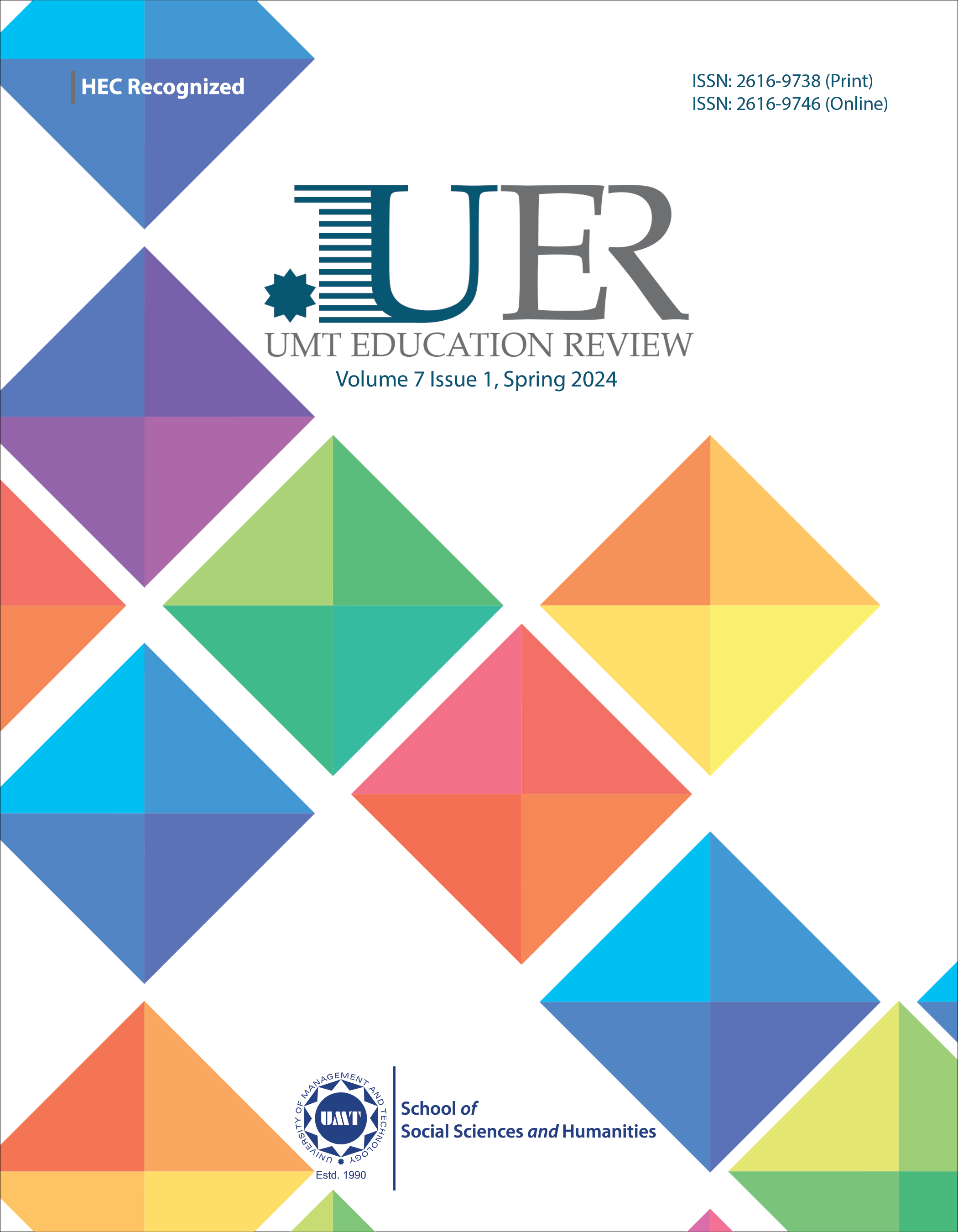Educational Research for the Future
Abstract
 Abstract Views: 0
Abstract Views: 0
This review paper reflects on the findings of two major educational texts. These reveal some of the underlying principles that underpin aspects of learning. The two books also shed light on why much educational research today is making minimal impact, in terms of benefiting both teachers and learners. Although the two books start from very different perspectives, there is a considerable overlap in the findings they present, and offer common ground in suggesting ways forward in developing educational research of much higher quality. These books, along with the numerous references cited in them, offer a clear framework for the future. This review paper seeks to summarise some of the key findings, drawing in selected related literature as needed. The findings are relevant for teachers, teacher trainers, researchers as well as education policy-makers.
Downloads
References
Ashcraft, M. H. (1994). Human memory and cognition. Harper Collins College Publishers.
Atkinson, R. C., & Shiffrin, R. M. (1968). Human memory: A proposed system, & its control processes. In K.W. Spence (Ed.), The psychology of learning, & motivation: advances in research, & theory (Vol. 2, pp. 89–195). Academic Press.
Ausubel, D. P. (1960). The use of advance organizers in the learning, & retention of meaningful verbal material. Journal of Educational Psychology, 51(5), 267–272. https://doi.org/10.1037/h0046669
Ausubel, D. P. (1968). Educational psychology: A cognitive view. Holt, Rinehart, & Winston.
Baddeley, A. D. (1986). Working memory. Oxford University Press.
Baddeley, A. D. (1997). Human memory: Theory, & practice. Psychology Press Ltd.
Baddeley, A. D. (2002). Is working memory still working. European Psychologist, 7(2), 85–97. https://psycnet.apa.org/doi/10.1027/1016-9040.7.2.85
Black, P., & Wiliam, D. (1998). Assessment, & classroom learning. Assessment in Education: Principles, Policy, & Practice, 5(1), 7–74. https://doi.org/10.1080/0969595980050102
Chen, W-C., & Whitehead, R. (2009). Understanding physics in relation to working memory. Research in Science and Technological Education, 27(2), 151–160. https://doi.org/10.1080/02635140902853624
Clark, J. M., & Paivio, A. (1991). Dual coding theory and education. Educational Psychology Review, 3, 149–210. https://doi.org/10.1007/BF01320076
Gardner, J. (2011). Educational research: What to do about impact! British Educational Research Journal, 37(4), 543–561. https://doi.org/10.1080/01411926.2011.596321
Gathercole, S. E., & Packiam, T. P. (2008). Working memory and learning: A practical guide for teachers. Sage Publications.
Hayes, J. R. (1981). The complete problem solver. The Franklin Institute Press.
Horn, J., & Wilburn, D. (2013). The mismeasure of education. Information Age Publishing.
Hussein, F., & Reid, N. (2009). Working memory and difficulties in school chemistry. Research in Science and Technological Education, 27(2), 161–186. https://doi.org/10.1080/02635140902853632
Johnstone, A. H. (1991). Why is science difficult to learn? Things are seldom what they seem. Journal of Computer Assisted Learning, 7, 75–83. https://doi.org/10.1111/j.1365-2729.1991.tb00230.x
Johnstone, A. H. (1997). Chemistry teaching, science or Alchemy? Journal of Chemical Education, 74(3), 262–268.
Johnstone, A. H. (2000) Teaching of Chemistry - logical or psychological? Chemistry Education: Research and Practice in Europe, 1(1), 9–15. https://doi.org/10.1039/A9RP90001B
Johnstone, A. H., Hogg, W. R., & Ziane, M. (1993). A working memory model applied to physics problem solving. International Journal of Science Education, 15(6), 663–672. https://doi.org/10.1080/0950069930150604
Johnstone, A. H., Morrison, T. I., & Reid, N. (1981). Chemistry about us. Heinemann.
Jung, E. S., & Reid, N. (2009). Working memory and attitudes. Research in Science & Technological Education, 27(2), 205–223. https://doi.org/10.1080/02635140902853665
Kirschner P. A., Sweller, J., & Clark R. E. (2006). Why minimal guidance during instruction does not work: An analysis of the failure of constructivist, discovery, problem-based, experiential, and inquiry-based teaching. Educational Psychologist, 41, 75–86. https://doi.org/10.1207/s15326985ep4102_1
Kirschner, P. A., & Hendrick, C. (2020). How learning happens. Routledge.
Kirschner, P. A. (2017). Stop propagating the learning styles myth. Computers & Education, 106, 166–171. https://doi.org/10.1016/j.compedu.2016.12.006
Kirschner, P. A., & van Merrie ̈nboer, J. J. G. (2013). Do learners really know best? Urban legends in education. Educational Psychologist, 48(3), 169–183. https://doi.org/10.1080/00461520.2013.804395
Massaro, D. W. (1975). Experimental psychology, & information processing. Rand McNally.
Miller, G. (1956). The magical number seven, plus or minus two: Some limits on our capacity for processing information. Psychological Review, 63, 81–87. https://psycnet.apa.org/doi/10.1037/h0043158
Newell, A., & Simon, H. A. (1972). Human problem solving. Prentice-hall.
Pickering, S. J., & Gathercole, S. E. (2004). Distinctive working memory profiles in children with special education needs. Educational Psychology, 24(3), 393–408. https://doi.org/10.1080/0144341042000211715
Reid, N., & Ali, A. A. (2020), Making sense of learning, a research-based approach. Springer.
Reid, N. (2019). A tribute to Professor Alex H Johnstone (1930–2017) his unique contribution to chemistry education research. Chemistry Teacher International, 1(1), Article e20180016. https://doi.org/10.1515/cti-2018-0016
Reid, N. (2021). The Johnstone triangle: The key to understanding chemistry. Royal Society of Chemistry.
Reid, N. (2009). Working memory and science education: conclusions and implications. Research in Science & Technological Education, 27(2), 245–250. https://doi.org/10.1080/02635140902853681
Robinson, K. (2011). Out of our Minds - Learning to be Creative. John Wiley, & Sons.
Shell, D. F., Brooks, D. W., Trainin, G., Wilson, K. M., Kauffman, D. F., & Herr, L. M. (2010). The unified learning model. Springer.
Slavin, R. E. (2002). Evidence-Based education policies: Transforming educational practice and research. Educational Researcher, 31(7), 15–21. https://doi.org/10.3102/0013189X031007015
Ud-Din, M. N., Reid, N., & Malik, I. A. (2016). Assessment moving into a new future. https://fbise.edu.pk/Downloads/Moving%20into%20a%20New%20Future.pdf
Wiliam, D. (2011). Embedded formative assessment. Solution Tree Press.
Wood, C. A. (1993). Creative problem solving in chemistry. Royal Society of Chemistry.
Zimmerman, B. J. (1989). A social cognitive view of self-regulated academic learning. Journal of Educational Psychology, 81(3), 329–339. https://doi.org/10.1037/0022-0663.81.3.329

This work is licensed under a Creative Commons Attribution 4.0 International License.
UER follows an open-access publishing policy and full text of all published articles is available free, immediately upon publication of an issue. The journal’s contents are published and distributed under the terms of the Creative Commons Attribution 4.0 International (CC-BY 4.0) license. Thus, the work submitted to the journal implies that it is original, unpublished work of the authors (neither published previously nor accepted/under consideration for publication elsewhere). On acceptance of a manuscript for publication, a corresponding author on the behalf of all co-authors of the manuscript will sign and submit a completed Copyright and Author Consent Form.
Copyright (c) The Authors










